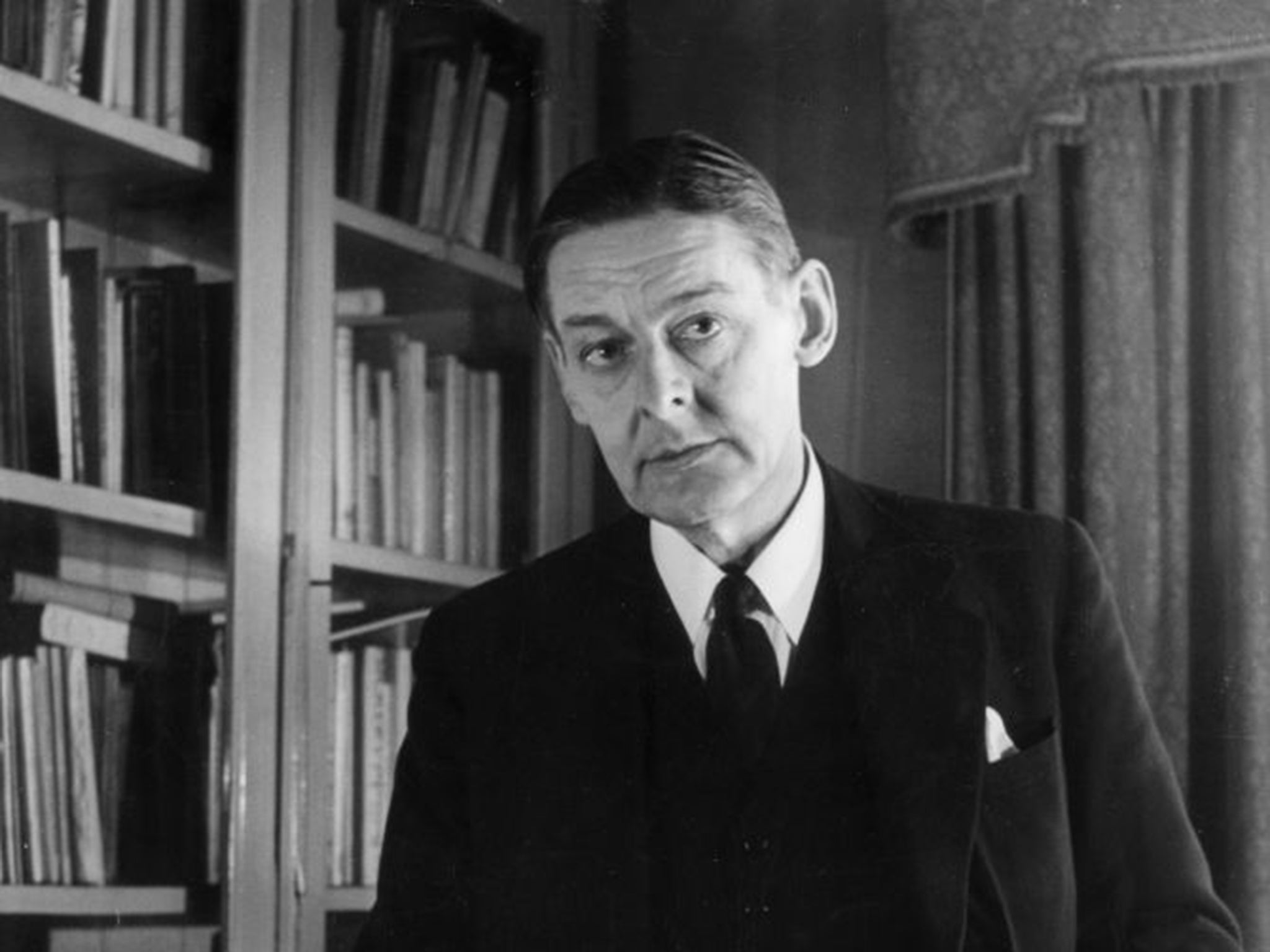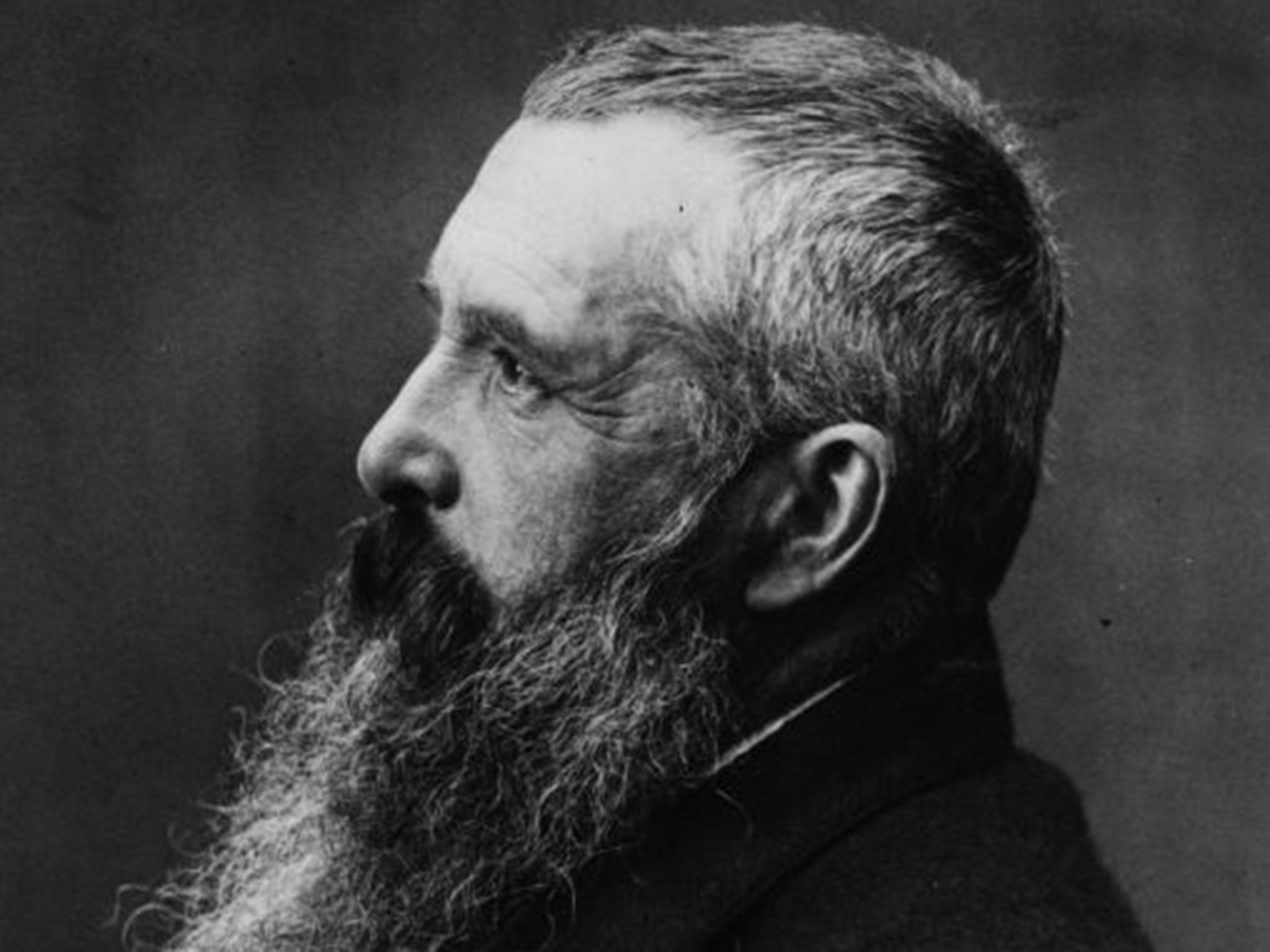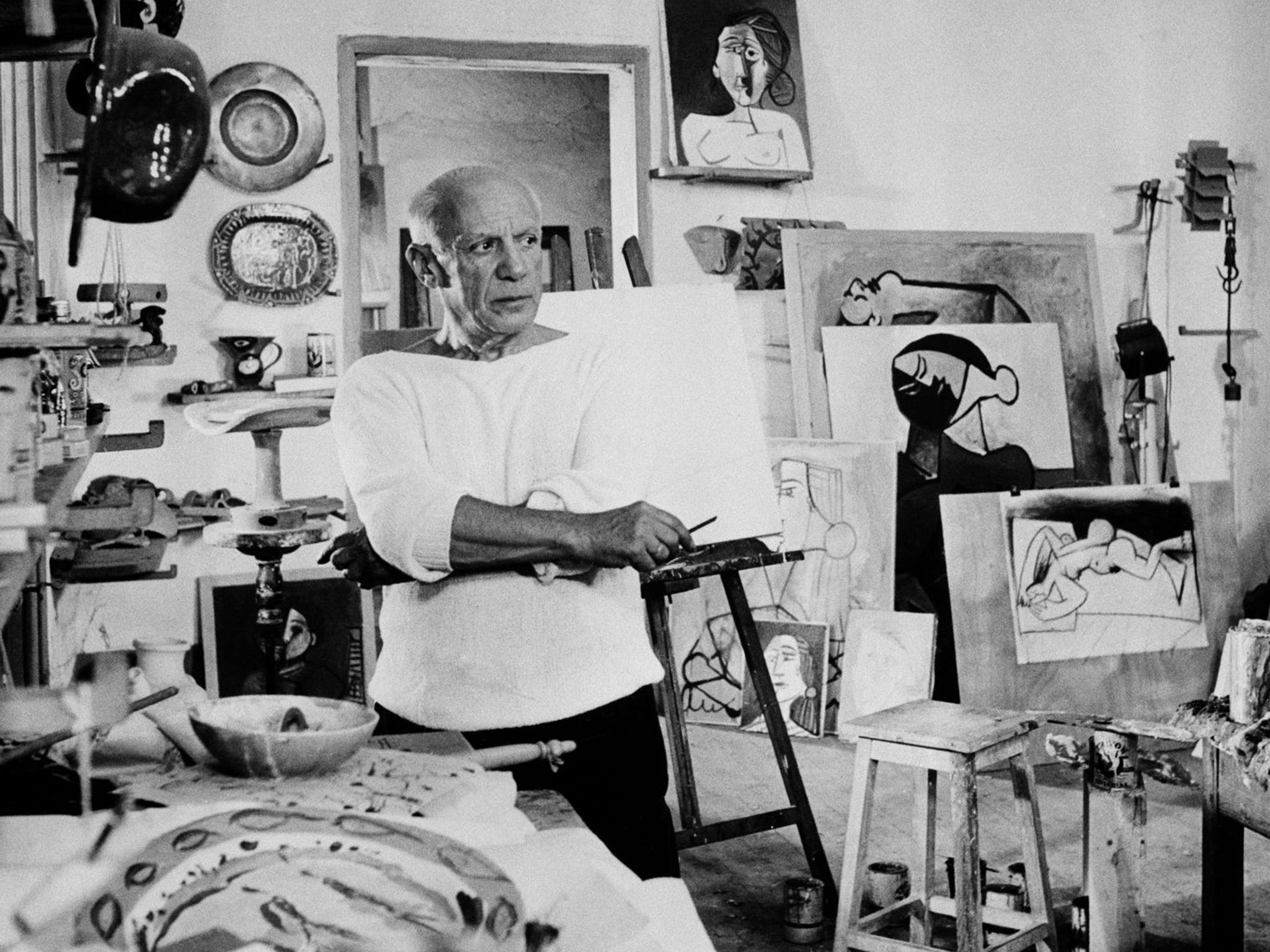Your support helps us to tell the story
From reproductive rights to climate change to Big Tech, The Independent is on the ground when the story is developing. Whether it's investigating the financials of Elon Musk's pro-Trump PAC or producing our latest documentary, 'The A Word', which shines a light on the American women fighting for reproductive rights, we know how important it is to parse out the facts from the messaging.
At such a critical moment in US history, we need reporters on the ground. Your donation allows us to keep sending journalists to speak to both sides of the story.
The Independent is trusted by Americans across the entire political spectrum. And unlike many other quality news outlets, we choose not to lock Americans out of our reporting and analysis with paywalls. We believe quality journalism should be available to everyone, paid for by those who can afford it.
Your support makes all the difference.When, in 1930, T S Eliot first sat down to lunch with the youthful Stephen Spender, their conversation is reported to have gone like this. Eliot: “And so, Mr Spender, what do you intend to do?” Spender: “I want to be a poet.” Eliot: “I can understand you wanting to write poems, but I don’t quite know what you mean by ‘being a poet’.” Neutral observers have always suspected that this was an implied rebuke, the result of Eliot wondering whether his protégé might not be more interested in the imagined advantages of the poetic lifestyle rather than the more mundane business of putting words on paper.
Whatever Eliot’s precise intentions, the memory of this exchange hung over an intriguing piece of academic research published last week which suggested, in the words of our sister paper i, that “the image of the tortured artist producing their best work when enduring emotional turmoil… could be a myth”. Having studied the effect of the death of a relative or close friend on the creativity of such artistic titans as Degas, Manet, Monet and Picasso – through analysis of nearly 15,000 paintings – the American scholar Kathryn Graddy concluded that works put on to canvas during such difficult periods tended to sell for “significantly less” at auction and were less likely to be included in major collections.
According to Professor Graddy, who teaches economics at Brandeis University in Massachusetts, the results of the survey “are consistent with the psychology literature relating to mood and creativity, but not consistent with the popular idea that suffering necessarily increases artistic creativity”. No doubt alarmed that her exercise in myth-busting might not go down well with the art-fancying public, she explained that this was “not a sad result; this is a happy result. It would be awful if you had to suffer bereavement just to be creative and productive.”

It would be awful. Just as (to skip from one art form to another) it would be awful to think that the ability to produce stellar poetry was conditional upon your taking opium, running a string of mistresses or dressing up in unusual clothes – all activities which have, over the centuries, contributed to the popular idea of the poet.
As to why the shades of Eliot and Spender should hang over this enquiry, the answer lies in Professor Graddy’s determination to bang yet another nail into the already well-sealed coffin of what might be called the myth of creative exceptionalism.
No doubt, creative exceptionalism – the idea that writers, painters and composers are “different” from the great mass of humanity, that they feel pain more exquisitely and work better in conditions of emotional upset, which they may very well have encouraged in the first place – has been going the rounds almost since art first came into existence. On the other hand, it may be said to have achieved its most significant focus during the Romantic era, a time when the figure of the “artist” assumed a well-nigh totemic status, valued less for the qualities that kept him in touch with humankind than for the aspects of his personality that drew him apart.
Keats, Shelley, Byron and the other great English Romantics may all have been dead before Queen Victoria ascended the throne, but the influence of this highly stylised view of the artist’s role and status persisted through the Victorian age and beyond. Here, for example, is the distinguished critic Sir Maurice Bowra, writing in 1943 on the duties and entitlements of the poet – a “shaman”, he insists, who is “no longer a man among men” but instead “in touch with some superior order of things”. As for the noise of politics and politicians, well, it “impinges on the serene silence of his contemplation and their vulgar emotion spoils the delicate concentration of his vision”.

Nothing wrong with quietism, of course, although you might think that here in the 21st century poets who lament the noise of politics impinging on the serene silence of their contemplation may not have very much left to write about. And yet it could be argued that two of the greatest impediments to a proper understanding of any of the creative arts are this age-old disinclination to believe that poets, painters and musicians pay their taxes, stir sugar into their tea and visit the lavatory just like anyone else, and the relish with which we approach those endless stories of genius being coaxed to the surface by pain, flamboyant behaviour or a wanton disregard for the constraints of society.
To jettison this highly misleading view of art means throwing overboard some long-cherished illusions. It means acknowledging that Jack Kerouac could have done with an editor to guide him through the chaos of On the Road, and that one or two celebrated pop albums would have worked better with a bit less sherbet.
Meanwhile, Professor Graddy’s research among the sales indexes offers conclusive evidence about the nature of creativity. If there is one New Year’s resolution that we would all be better off sticking to in 2016 it is the idea that “art”, as the Marxists always used to tell us, is ordinary.

Join our commenting forum
Join thought-provoking conversations, follow other Independent readers and see their replies
Comments